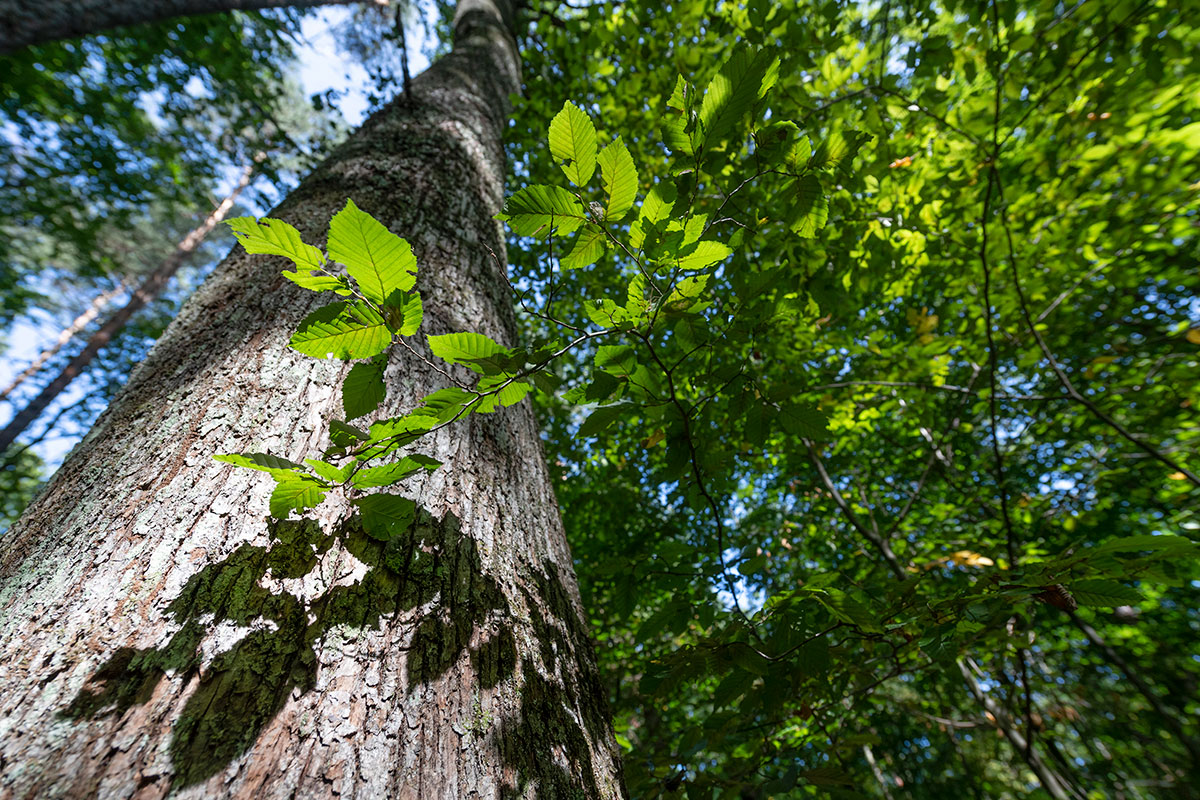The Institute of Ecology and Botany seeks to propose scientific solutions to the environmental challenges of our time, such as land-use change, habitat degradation, climate change, urbanisation, the effects of intensive agriculture, invasions, and the emergence of new diseases. The Institute’s nearly 80 researchers, organised in research groups, work on a wide range of organism groups and habitats, using a variety of methodological approaches. In addition to its basic research activities, the institute carries out a number of public monitoring and applied research activities.
Priority Areas
- Maintenance and restoration of the integrity of nature and society.
- Investigating the impact of silviculture on forest communities.
- Plant genetic conservation and ecological restoration in the National Botanical Garden.
- Development of conservation strategies based on seed ecology.
- Reconstruction of grassland habitats.
- Testing restoration ecology methods for the development of the national green infrastructure.
- Predicting the ecological impacts of climate change in the Carpathian Basin.
- The status biodiversity and ecosystem services in urban habitats.
- Biodiversity and protection of natural habitats embedded in agricultural landscapes.
- Ecological intensification, agroecology.
- Ecological analysis and sustainability of plant–pollinator relationships.
- Ecological analysis of biological invasion and its social and economic implications.
- Prevention of emerging diseases based on ecological principles.
- Investigation of plant community dynamics, search for community assembly rules.
- Maintaining plant databases and updating distribution maps.
- Knowledge co-production between science and other knowledge systems.
Priority publications
Deák Balázs; Bede Ádám; Rádai Zoltán; Dembicz Iwona; Apostolova Iva; Batáry Péter; Gallé Róbert; Tóth Csaba Albert; Dózsai József; Moysiyenko Ivan I.; Sudnik‐Wójcikowska Barbara; Zachwatowicz Maria; Nekhrizov Georgi; Lisetskii Fedor N.; Buryak Zhanna A.; Kis Szabolcs; Borza Sándor; Godó Laura; Bragina Tatyana M.; Smelansky Ilya; Molnár Ábel; Bán Miklós; Báthori Ferenc; Árgay Zoltán; Dani János; Kiss Réka; Valkó Orsolya. Contribution of cultural heritage values to steppe conservation on ancient burial mounds of Eurasia CONSERVATION BIOLOGY, pp. 1-13. Paper: e14148 , 13 p. (2023)
2023
Korányi Dávid; Gallé Róbert; Torma Attila; Gallé‐Szpisjak Nikolett; Batáry Péter. Small grassland fragments and connectivity support high arthropod functional diversity in highly modified landscapes INSECT CONSERVATION AND DIVERSITY, Paper: 12668 (2023)
2023
Molnár Ábel Péter; Demeter László; Biró Marianna; Chytrý Milan; Bartha Sándor; Gantuya Batdelger; Molnár Zsolt. Is there a massive glacial–Holocene flora continuity in Central Europe? BIOLOGICAL REVIEWS, Paper: 13007 (2023)
2023
Gallé Róbert; Tölgyesi Csaba; Szabó Ágota Réka; Korányi Dávid; Zoltán Bátori; Hábenczyus Alida; Török Edina; Révész Kitti; Torma Attila; Gallé-Szpisjak Nikolett; Lakatos Tamás; Batáry Péter. Plant invasion and fragmentation indirectly and contrastingly affect native plants and grassland arthropods SCIENCE OF THE TOTAL ENVIRONMENT, Paper: 166199 (2023)
2023
Garamszegi Laszlo Zsolt; Kurucz Kornelia; Soltesz Zoltan. Validating a surveillance program of invasive mosquitoes based on citizen science in Hungary JOURNAL OF APPLIED ECOLOGY, 60 : 7 pp. 1481-1494. , 14 p. (2023)
2023
Horváth Csenge Veronika; Kovács Bence; Tinya Flóra; Schadeck Locatelli Julia; Németh Csaba; Crecco Lorenzo; Illés Gábor; Csépányi Péter; Ódor Péter. A matter of size and shape: Microclimatic changes induced by experimental gap openings in a sessile oak–hornbeam forest SCIENCE OF THE TOTAL ENVIRONMENT, 873 Paper: 162302 (2023)
2023
Erdős László; Ho Khanh Vu; Bátori Zoltán; Kröel‐Dulay György; Ónodi Gábor; Tölgyesi Csaba; Török Péter; Lengyel Attila. Taxonomic, functional, and phylogenetic diversity peaks do not coincide along a compositional gradient in forest‐grassland mosaics JOURNAL OF ECOLOGY, 111 : 1 pp. 182-197. , 16 p. (2023)
2023







